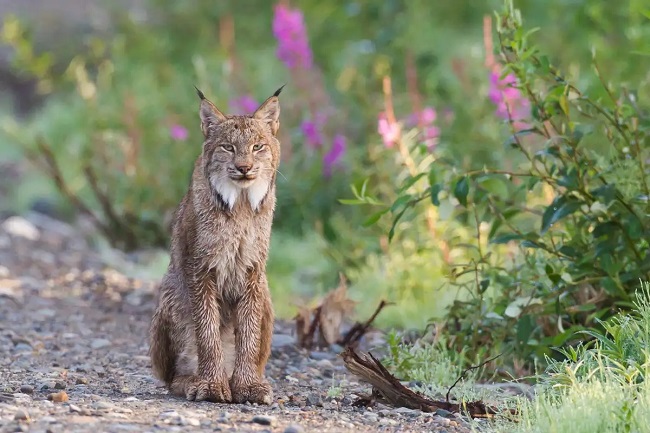The lynx, with its mesmerizing eyes and tufted ears, might seem like an appealing pet option for exotic animal enthusiasts. However, keeping a Lynx as a Pet is not for everyone. It requires a deep understanding of the species, a commitment to their welfare, and often, specific legal permissions.
This article delves into the realities of having a Lynx as a Pet, including the legalities, housing needs, dietary requirements, and potential challenges.

Legality of Owning a Lynx as a Pet
Before you consider purchasing a lynx, it’s essential to research your local, state, and country laws regarding exotic pet ownership. In many places, owning a lynx is illegal without a specific permit or license.
Read Also:
These regulations aim to protect both the animals and the public. Even if legal in your area, permits often require demonstrating an understanding of the animal’s care needs and providing appropriate housing and veterinary care.
Housing and Enrichment Needs
A lynx is a wild animal that requires a significant amount of space to roam, hunt, and play:
Housing: Lynx should have a large, secure outdoor enclosure with plenty of space for exercise. The enclosure should be fortified to prevent the lynx from escaping and other animals from entering.
Enrichment: Lynx are active and intelligent creatures that need environmental enrichment, such as climbing structures, toys, and hiding places. Without sufficient mental and physical stimulation, they may become bored, which can lead to destructive or aggressive behaviors.
Lynx Dietary Requirements
Lynx are obligate carnivores and need a diet rich in raw meat. Some pet lynx owners feed a diet of raw, whole prey, such as rabbits or rodents, which can be costly and not for the faint of heart.
The Challenges of Lynx Ownership
Lynx are wild animals, and as such, present challenges:
Temperament: Lynx are not domesticated like cats or dogs. They can exhibit unpredictable behavior, which can be dangerous.
Lifespan: Lynx can live up to 15 years or more in captivity. Owning a lynx is a long-term commitment.
Veterinary Care: Finding a vet experienced in treating lynx can be difficult and costly.
Socialization and Behavioral Traits of Lynx
Lynx are solitary animals in the wild and they retain these instincts even in captivity:
Socialization: Lynx are not naturally sociable creatures. While they may form a bond with their primary caregiver, they are not typically comfortable around strangers or in new environments. This can make situations like vet visits particularly challenging.
Territorial Behavior: Lynx are territorial and can become aggressive if they feel their space is being invaded. This can pose a risk not only to other pets and people but also to the lynx if it leads to confrontations.
Predatory Instincts: Lynx have strong hunting instincts and can pose a threat to other small animals in the household.
Lynx Interaction with Humans and Other Pets
Lynx interaction with other members of the household requires careful consideration:
Interaction with Humans: Even a lynx that has been socialized and is comfortable with its primary caregiver can react unpredictably to human behaviors. These animals are strong and equipped with sharp claws and teeth, making their bites or scratches potentially dangerous.
Interaction with Other Pets: Due to their natural predatory instincts, lynx usually don’t do well with other pets, particularly small animals. If other pets are already part of the household, a lynx may not be the best choice.
Read Also:
Conclusion
Keeping a Lynx as a Pet is a significant undertaking that requires thorough research and understanding. It involves considerable responsibilities, including providing the right diet, housing, enrichment, and veterinary care. It also requires navigating the complex legalities surrounding exotic pet ownership.
While these majestic animals can captivate the heart, it’s essential to remember that a lynx is a wild animal. For those committed to their welfare and equipped to meet their needs, having a Lynx as a Pet can be a unique and rewarding experience.
























